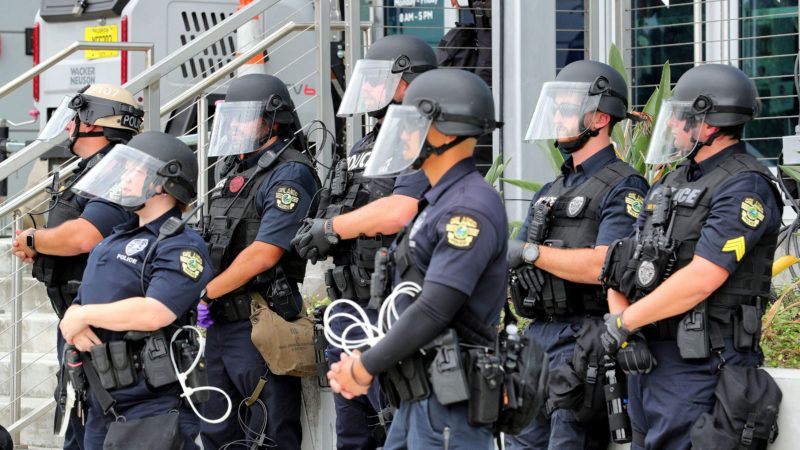Professionalizing Police Hasn't Worked. Try Privatizing Instead.
No amount of protesting is likely to reduce police brutality in the absence of structural reforms that increase accountability, competition, choice, and incentives.

The Minneapolis City Council's plan to dismantle the city's police department following the death of George Floyd in police custody has some people concerned about how order will be maintained afterward.
It's a reasonable concern. All too often in public policy, overreaction to a scandal creates its own problems. The flip side of that, though, is tolerating abuse, mismanagement, or incompetence. That's too common in government.
Police abuse has qualities that make it especially troubling. There's an asymmetry between an armed police officer and a mostly unarmed civilian population. Since many of us operate with the starting assumption that the police are there to protect us, it's a particular betrayal when they threaten us instead. And police action may seem arbitrary rather than rules-based.
This abstract truth was made concrete to me last year on a weekend morning when I was driving my 20-year-old, beat-up car through one of Boston's fanciest suburbs. I turned a corner and suddenly a man in plainclothes was in front of the car waving me toward the curb. He accused me of speeding, flashed a badge, and identified himself as police, and asked me where I was going. At some point in the interaction, I asked if he had a radar gun. He said, "never ask a police officer if he has a radar." He said I seemed to be reacting very emotionally. I was shaken by the whole thing but never filed a complaint. The whole thing happened in a town where I'm not a resident.
When any government institution loses public confidence, it's worth asking, what are the accountability mechanisms? In colonial Boston, individuals were elected to one-year terms as constables. Having to face the voters frequently for re-election is one way of creating accountability.
Like so many other government functions in the progressive era, though, policing was professionalized and depoliticized. Some of this was a sincere effort to reduce corruption and move from patronage to civil service; some of it was caught up in the anti-Catholic, anti-immigrant sentiment of other "reform" and anti-machine politics of the day. A key figure in the professionalizing trend was August Vollmer, who began in 1909 as chief of the Berkeley, California, police department.
During various police scandals over the years, there has been discussion of moving from the model of an appointed police chief or police commissioner to one directly elected by the public, or one accountable to a school-committee-style police commission of members elected by the public. Even frequent direct elections, though, are no guarantee of managerial quality or of public job-approval, to judge by polls of what people think of Congress.
A more radical reform might be privatizing the police. Perhaps the profit motive will create incentives to use technology and scale to innovate in ways that would reduce crime and also reduce abuse. The same way that, say, Amazon and Walmart compete to serve retail customers most efficiently, or ATT and Verizon compete to offer the best cellphone service, police contractors—perhaps even minority-owned or managed-ones—might compete to provide cities with the least crime, the least abuse and misconduct, and the best resident ratings for satisfaction with police services. A risk of that approach is that the private police companies could wind up like defense contractors at their worst—hiring former officials or winning fat contracts with the help of campaign contributions or lobbying expenditures rather than on the basis of quality performance. But even the threat of privatization might help improve accountability for existing government police forces.
It's also worth exploring whether there are steps short of full privatization that might have similar benefits in terms of competition and choice. Perhaps police reform could borrow a page from education reform and create "charter precincts," where neighborhoods opt-out of their city's central police bureaucracy and are allowed flexibility to experiment with different approaches. Successful charter precincts might grow to become charter-management organizations the same way that KIPP or Success Academy or Uncommon Schools charter schools operate multiple sites.
As a cause of death, killings by police, at about 1,000 a year in the U.S., are small in comparison to the numbers dead because of medical errors or "deaths of despair" from alcoholism, drug overdoses, or suicide. There may even be some overlap in cases of "suicide by cop." No amount of protesting, violent or peaceful, is likely to reduce that toll in the absence of structural reforms that increase accountability, competition, choice, and incentives. The Minneapolis City Council's action, though it appears drastic, could be a gesture in the right direction.
